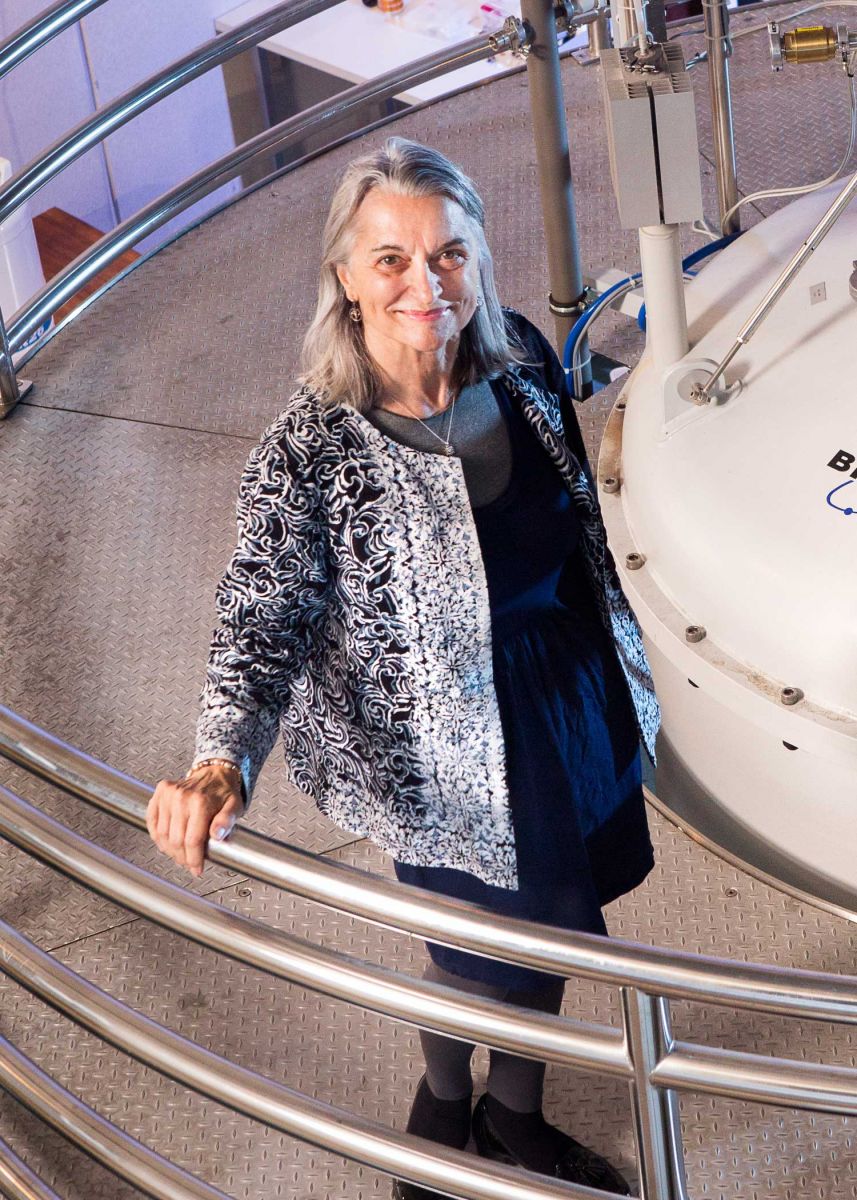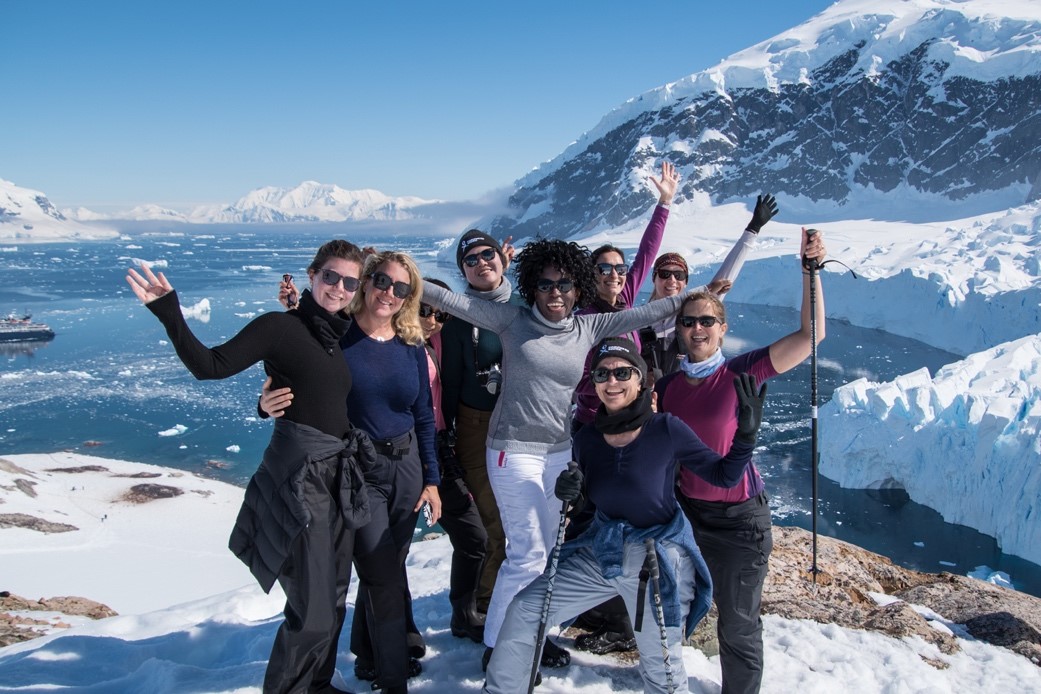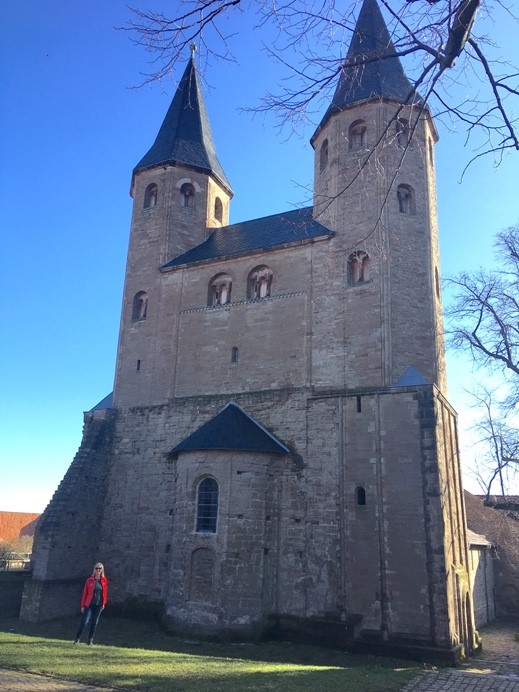Deputy Director's Blog - 10 April 2020 - 'Grounded'
Deputy Director's Blog - Professor Frances Separovic AO is 'Grounded'
 To prevent the spread of coronavirus, like many colleagues and peers, my former science globe-trotting lifestyle has dramatically ground to a halt. Since mid-March, work-related travel is not permitted by the University and most other organisations. So, there will likely be no more conferences, international meetings or field trips this year: I will not be attending the Commonwealth Chemistry Congress in Trinidad & Tobago scheduled to take place in May nor a conference in Manchester planned for July. The IUPAB meeting, that was going to take place in Brazil in October this year, has been postponed until October 2021 and at least five others already have been rescheduled.
To prevent the spread of coronavirus, like many colleagues and peers, my former science globe-trotting lifestyle has dramatically ground to a halt. Since mid-March, work-related travel is not permitted by the University and most other organisations. So, there will likely be no more conferences, international meetings or field trips this year: I will not be attending the Commonwealth Chemistry Congress in Trinidad & Tobago scheduled to take place in May nor a conference in Manchester planned for July. The IUPAB meeting, that was going to take place in Brazil in October this year, has been postponed until October 2021 and at least five others already have been rescheduled.
The trips I now remember most vividly and fondly were my 2019 trip to Antarctica as part of ‘Team HB4’ and my last meeting held in Drübeck, Germany, that took place in the beautiful 1000-year old Drübeck Abbey, a former Benedictine monastery for nuns.
 |
 |
In some ways, like the monastic life lived by the nuns, we are all now in enforced isolation. It feels somewhat like a ‘meditation retreat’; it has certainly had that effect on me. Surprisingly, I admit that at times I find myself enjoying the solitary lifestyle. Some days I wake up with this blissful ignorance and forget what’s happening but then suddenly it’ll hit me like a ton of bricks. So, with my ‘wings clipped’ for a time, I would like to share some of my own musings and meditations.
For many of us it is frustrating that our research has stopped, as it is not considered ‘essential’ or COVID-19 related. It is in some cases devastating, such as when clinical trials for important medicines have been halted. However, hopefully most of us can pick up where we left off once this is all over.
So, what have I been up to? I have been reading my scientific literature. Usually I do this quickly under time pressure, but nowadays I allow myself more time to read and think about what I’m reading. I am really enjoying this as well as reading some excellent and not so excellent books.
We recently submitted two papers and, together with Marc Sani, I am editing a book on NMR. This means that I communicate with colleagues around the world, which helps to make me feel connected to what is going on.
Like many of you, I am conducting lab and group meetings via Zoom. I have even had a virtual drink with friends and attended a seminar hosted by the Royal Society of Victoria on forecasting bushfire smoke. They have all worked rather well. Although they are not quite as satisfying as meeting in person or attending live events. On the upside, these meetings tend to be quite focussed and possibly achieve more. Also, I am still connected to work and my colleagues. I will, however, truly enjoy meeting with groups of people in person again once this is all over.
Rather than packing my bags and boarding a plane to Malaysia this week, I am participating in the International Science Council meeting of the Regional Office for Asia Pacific via Zoom. Also, I continue to ‘attend’ council meetings of the Australian Academy of Science and the Biophysical Society.
Scientists continue to work together, even whilst physically distant. Although my own work is not related to the coronavirus, through these societies I can make a small contribution to the societal and global discussions about how best to tackle this challenge we all face. As President-Elect of the Biophysical Society, I was involved in writing a letter to Congress about the need to support science in the fight against COVID-19. Also, I strongly support the actions of the Australian Academy of Science, which has urged the Australian Government to be transparent about the data that underpins the decisions being made and path taken in relation to the coronavirus crisis in Australia.
As I live in an inner-city apartment, I feel the need to occasionally go out and exercise during the day. Part of my exercise routine is to take walks around the city and sometimes they take me to Docklands and surrounds. This has been an interesting experience: where the city is usually a pulsating throng of people, I now find parts of it deserted, quiet and empty. It is strangely still and calm, devoid of people; like the end of the world scenes from ‘On the Beach’. Usually only in a wilderness landscape like the Australian outback or Antarctica do we experience a world without people and our smallness in the vastness of space and time. I am not a particularly spiritual person, but this feels transcendental to me. I feel connected to the place I live. Even in Antarctica I was not alone but with a ‘team’ of 100 women, bonding, talking reflecting!
And my apartment, which has often felt more like a hotel than a home, now feels like my haven. Also, I am enjoying cooking (not one of my talents)! Rather than an annoyance, it has been fun to cook even a simple meal for myself, like pasta - hooray, I’ve got pasta! I am also making a concerted effort to connect to my friends and family. As the pace of life slows down, I notice and appreciate more where I am, what I am doing and with whom I am.
I received an email recently from a researcher in Kenya, who told me she is having trouble getting soap. When I hear from scientific peers across the world, I am reminded that in Australia we are doing it relatively easy!
We are all making sacrifices at the moment to contain the spread of coronavirus within our community to save lives. I am reminded of Henry V’s speech before the battle of Agincourt, that we are all called to solidarity and heroism at this time. At the risk of sounding grandiose:
“We few, we happy few, we band of brothers;
For he to-day that sheds his blood with me
Shall be my brother; be he ne'er so vile,
This day shall gentle his condition:”
Weirdly, a sorority of sisters or fellowship of scientists does not have the same ring as the original Shakespearean dialogue.
Finally, as Easter draws upon us, remember that Easter is a story of hope – a belief in better days to come. Let us celebrate Easter with hope, friendship and laughter with the people that matter most.
Professor Frances Separovic AO
Deputy Director, Bio21 Institute

